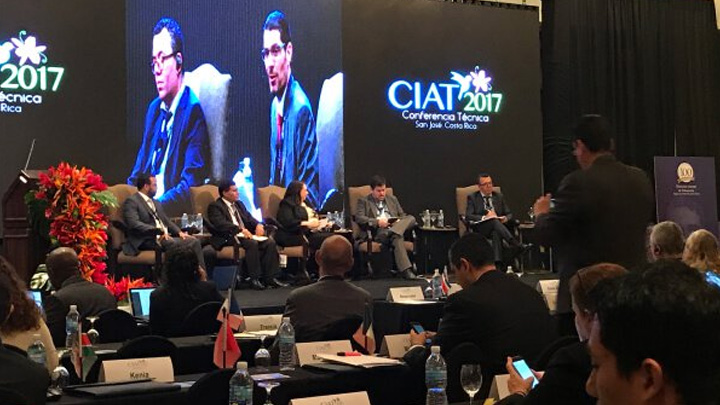Isaac Gonzalo Arias, Director of Cooperation and International Taxation of CIAT, briefly describes how the current dynamic and complex context poses great challenges to the tax administrations of Latin America

“Heterogeneity” is perhaps the term that best defines Latin America (LA), both for the geographical and cultural differences between its countries and for the inequality of its inhabitants’ levels of development. Defining common challenges for its tax administrations (TA) is no easy task. The region boasts world-class TAs and others with significant deficiencies, and CIAT’s mission is to work to reduce the gaps between their development levels.
Although some regional tools for harmonisation exist — models, manuals, proposals — not much harmonisation has been achieved in the area of tax policy. For example, the Tax Code of the CIAT-IDB-GIZ represents a regional model that attempts to motivate reforms aimed at “levelling the playing field”. In international taxation, transparency and information exchange are producing a harmonisation process that arises from global initiatives. This process represents a challenge for the region. However, it is born of the experience of developed countries outside of AL. I would call this process “imported harmonisation”.
The TAs of LA have improved mainly thanks to the use of technology and greater political support from their governments. According to CIAT data, since the 1960s the tax revenues of the central governments of LA have shown a positive trend, increasing from 9.7 (1960) to 16.2 (2014) GDP points, with the latter value being the highest recorded in this period.
The greatest challenge faced by the TAs is to “do + with –”. To accomplish this, it is necessary to target efforts to those areas where risks of non-compliance exist, with the aim of classifying them and either preventing their occurrence or managing them. The challenge is to strengthen various processes and integrate them into a single platform — for example, information access and management, taxpayer registers, tax current accounts, invoicing systems, taxpayer services, investigation, auditing, collection, enforced collection, cooperative compliance initiatives, etc. In this area, the use of advanced technology solutions makes all the difference. To not fail in the attempt, it is essential to have adequate planning in which the critical areas operate in a coordinated and inclusive manner with actors outside the scope of the TA.
Adequate monitoring of tax incentives contributes to the proposal discussed above. According to CIAT data, they represent 4.6 GDP points on average in LA (2012), with this being a significant number. Likewise, proper application of agreements to prevent double taxation constitutes another challenge. This latter issue is not currently relevant for all LA countries, however they are gradually expanding their networks.
Strengthening of the legal framework represents unfinished business for many countries of LA. Tax planning is currently sophisticated, treading a very fine line between avoidance and evasion. It is complicated for the TAs to apply general and specific anti-avoidance rules. As a complement, it is a good time to consider strategies for avoiding litigation and to pay attention to the capacity of the courts responsible for tax matters.
To confront these challenges, political commitment, dialogue and cooperation between peers, international support, investment in resources for the TAs, and, above all, tax transparency are indispensable. In this context, the recent collaboration agreement signed between CIAT and EUROsociAL+ to promote the exchange of experiences, know-how and good practices between the TAs of the European Union, as well as between the Latin American administrations themselves, within the framework of the EUROsociAL+ Programme, represents an opportunity for the TAs of LA.
Link to the article: https://eurosocial.eu/en/noticia/eurosocial-y-ciat-apoyaran-a-las-administraciones-tributarias-de
Isaac Gonzalo Arias es Director de Cooperación y Tributación Internacional del Centro Interamericano de Administraciones Tributarias, CIAT



